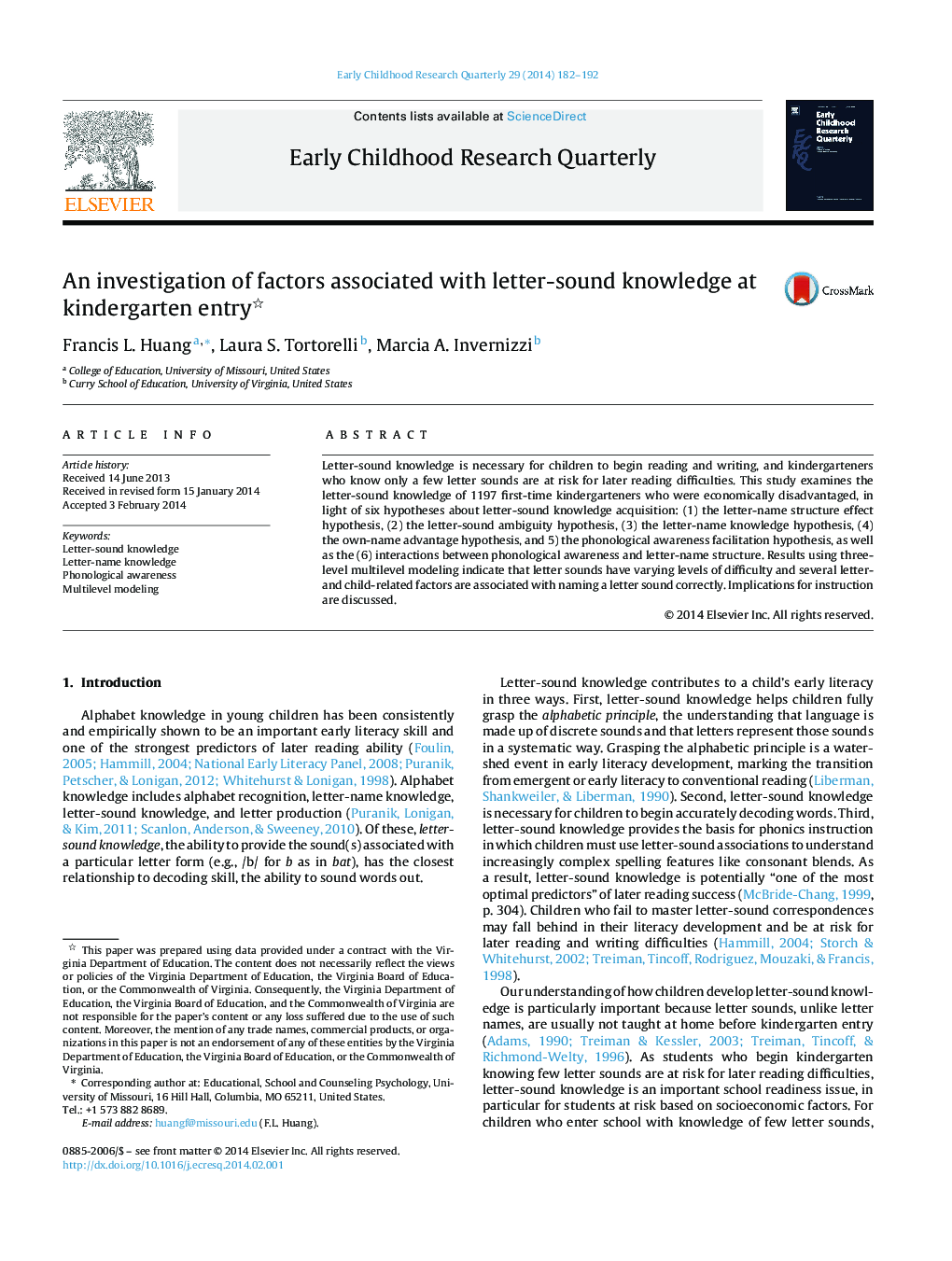| Article ID | Journal | Published Year | Pages | File Type |
|---|---|---|---|---|
| 353907 | Early Childhood Research Quarterly | 2014 | 11 Pages |
•Letters with names that provide clues to their sounds are learned earlier.•Letters with a one-to-one relationship to their sounds are learned earlier.•Knowledge of a letter's name is associated with an increase in the odds of knowing that letter's sound.•Children tend to learn the sound of the first letter of their own first names earlier.•Greater phonological awareness is associated with greater letter-sound knowledge.
Letter-sound knowledge is necessary for children to begin reading and writing, and kindergarteners who know only a few letter sounds are at risk for later reading difficulties. This study examines the letter-sound knowledge of 1197 first-time kindergarteners who were economically disadvantaged, in light of six hypotheses about letter-sound knowledge acquisition: (1) the letter-name structure effect hypothesis, (2) the letter-sound ambiguity hypothesis, (3) the letter-name knowledge hypothesis, (4) the own-name advantage hypothesis, and 5) the phonological awareness facilitation hypothesis, as well as the (6) interactions between phonological awareness and letter-name structure. Results using three-level multilevel modeling indicate that letter sounds have varying levels of difficulty and several letter- and child-related factors are associated with naming a letter sound correctly. Implications for instruction are discussed.
